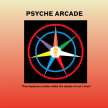Harnessing the Mind's Potential: Exploring the Power of the Human Psyche in Healing.
"Unleashing the Healing Potential: The Mind's Extraordinary Influence on Disease Recovery"

The intricate and enigmatic nature of the human mind has captivated scholars, scientists, and philosophers for centuries. Beyond its cognitive functions and emotional landscapes, recent research has begun to shed light on the extraordinary potential of the mind to influence physical well-being, including its ability to aid in the healing of various diseases. This essay delves into the captivating realm where neuroscience, psychology, and medicine intersect, unveiling the burgeoning understanding of how the mind's power can potentially contribute to the alleviation and even cure of diseases.
The Mind-Body Connection
Ancient civilizations have long recognized a profound link between the mind and the body. However, modern science has only recently begun to unravel the intricacies of this connection. The field of psychoneuroimmunology has unearthed a complex network of interactions between psychological processes, the nervous system, and the immune system. Stress, for instance, has been shown to suppress immune function, potentially leaving the body vulnerable to various ailments. Conversely, positive emotions, such as joy and optimism, can enhance immune response and promote healing.
Placebo and Nocebo Effects
The placebo effect, a remarkable phenomenon in which a patient experiences health improvements due to the belief in receiving an active treatment, underscores the profound influence of the mind on physical health. Research has demonstrated that the brain's expectation and belief systems can trigger biochemical changes that alleviate symptoms and promote recovery. Harnessing the power of the placebo effect could hold promise for developing novel interventions that harness the mind's potential to heal.
Conversely, the nocebo effect highlights the mind's role in exacerbating or even causing illness. Negative expectations and beliefs can trigger physiological responses that contribute to adverse health outcomes. Acknowledging and mitigating the nocebo effect is crucial in enhancing the overall efficacy of medical treatments.
Mindfulness and Stress Reduction
The practice of mindfulness meditation has gained traction as a potent tool for managing stress, anxiety, and pain. Mindfulness involves cultivating present-moment awareness and non-judgmental acceptance. Studies have shown that regular mindfulness practice can lead to changes in brain structure and function, fostering emotional regulation and resilience. By reducing stress and promoting relaxation, mindfulness may indirectly contribute to healing processes within the body.
Visualization and Guided Imagery
The mind's ability to influence the body is also evident in the practice of visualization and guided imagery. By creating vivid mental images of healing and recovery, individuals may activate neural pathways that facilitate physiological responses conducive to health. Cancer patients, for instance, have reported reduced pain and improved quality of life through guided imagery practices that help alleviate treatment-related side effects.
Neuroplasticity and Healing
The concept of neuroplasticity—the brain's ability to reorganize itself in response to experiences—has profound implications for disease recovery. Stroke survivors, for instance, can undergo remarkable rehabilitation through focused mental exercises that stimulate the brain's rewiring and recovery processes. Harnessing neuroplasticity could open doors to innovative interventions that facilitate healing and functional restoration for various conditions.
Biofeedback and Mind-Body Control
Advancements in technology have enabled the development of biofeedback techniques that allow individuals to gain insight into their physiological processes and learn to exert conscious control over them. From heart rate variability to brainwave patterns, biofeedback empowers individuals to influence bodily functions once considered involuntary. Harnessing this mind-body connection through biofeedback could hold promise for managing conditions such as chronic pain, hypertension, and anxiety.
The potential of the mind to contribute to the healing of diseases is a realm of exploration that continues to expand with each new discovery. From the placebo effect's astonishing ability to trigger biochemical responses to the transformative impact of mindfulness and guided imagery, our understanding of the mind's power is reshaping the landscape of healthcare. As we delve deeper into the intricacies of the mind-body connection, we are poised to unlock new avenues for disease treatment and prevention. Embracing the holistic potential of the human psyche not only enriches our understanding of health but also holds the promise of a more integrated and comprehensive approach to healing.
About the Creator
Armando Rios
Welcome to my channel! My name is Armando, and I'm here to share topics that make a difference in people's physical and mental health. I provide solutions and insights to help improve your overall well-being.






Comments
There are no comments for this story
Be the first to respond and start the conversation.